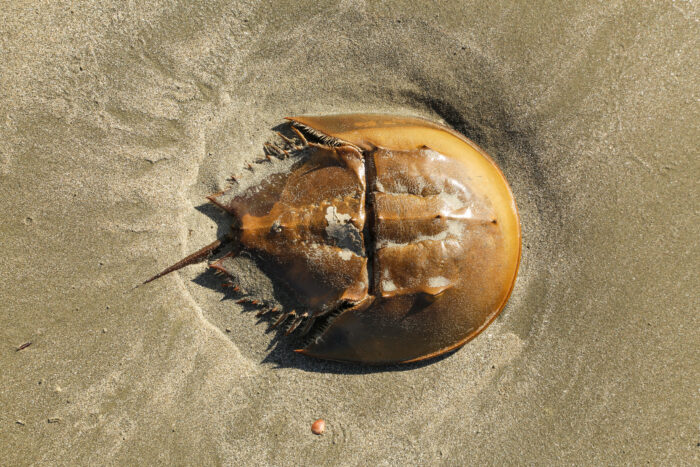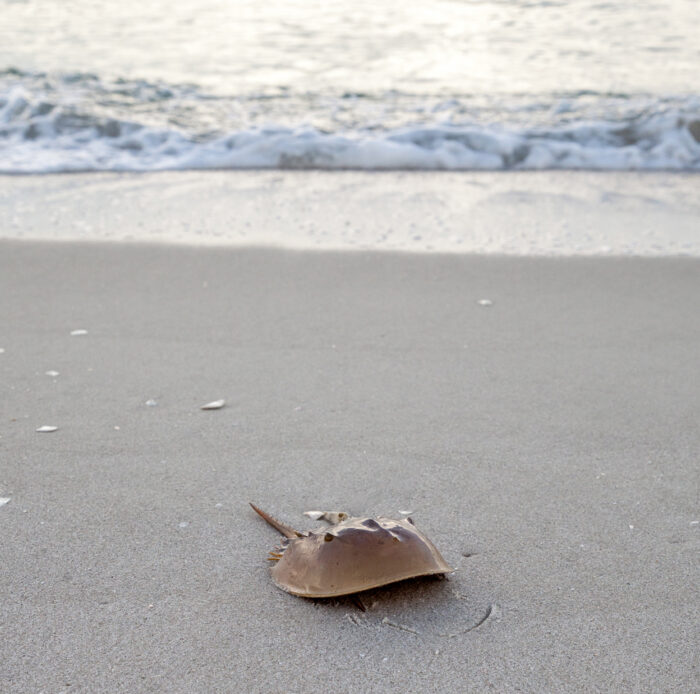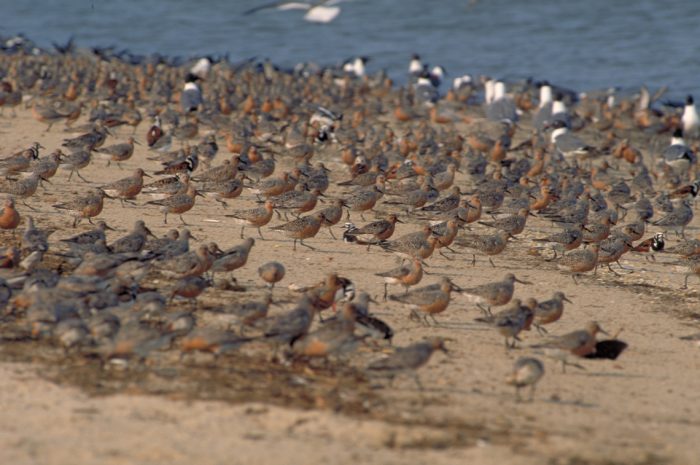Historic limits on horseshoe crab harvest will protect threatened shorebirds
Every spring, Endangered Species Act-listed Rufa red knots stop on South Carolina’s beaches to refuel on nutrient-rich horseshoe crab eggs before flying straight to the Arctic. But a Massachusetts-based company harvests these crabs for use of their blood in biomedical testing and threatens the shorebirds’ survival.

When the birds descend to feed on horseshoe crab eggs, the only food source rich enough to support the bird’s arduous migration, Charles River Laboratories removes crabs from South Carolina beaches and interrupts this perfectly timed natural ritual. Charles River Labs has continued to rely on South Carolina’s dwindling horseshoe crabs when there is a synthetic alternative to horseshoe crab blood that companies like Eli Lilly have switched to.
But just as red knots arrive in South Carolina to feed this spring, we have reached a major win for both species — closure of horseshoe crab harvest on all critical red knot stopover beaches in South Carolina.
“These shorebirds have evolved to visit South Carolina at exactly the right time to essentially double their body weight in horseshoe crab eggs,” says Riley Egger, Land, Water, and Wildlife Program Director at the Coastal Conservation League.

Adds Egger, “Once you take horseshoe crabs from the beach and hold them elsewhere, you disturb an incredibly delicate balance between the two species.”
SELC represents the Coastal Conservation League and Defenders of Wildlife in South Carolina District Court and argued against the practice of horseshoe crab “holding ponds” that keep the red knot’s food source far away from beaches where red knots can access their eggs.
The environmental groups shed light on multibillion-dollar pharmaceutical company Charles River Labs’ harvest of many thousands of horseshoe crabs to extract their blood for use in the biomedical industry. Before Charles River Labs takes up to half of their blood, horseshoe crabs wait in holding ponds, a practice allowed only in the state of South Carolina.
South Carolina is a much better place for wildlife today.
Catherine Wannamaker, SELC Senior Attorney
Because the crabs cannot spawn on the state’s beaches, the threatened red knot is unable to feast on its critical, nutrient-rich food source of horseshoe crab eggs. During their 9,000-mile migration each spring, each red knot must consume several hundred thousand horseshoe crab eggs to survive the trip.
“As these long-distance migrants return to the shores of South Carolina this month, we are grateful they now have a better chance to thrive,” says Ben Prater, the Southeast Program Director for Defenders of Wildlife.
The court order also requires Charles River Labs’ compliance with permit terms from the state Department of Natural Resources, which bar the practice of keeping female crabs in holding ponds.

“What a victory for red knots,” says Catherine Wannamaker, SELC Senior Attorney. “There is no better way to protect this bird than to end harmful harvesting on critical stopover beaches and prevent females from going to holding ponds.”
This represents the second major win for red knots in the Palmetto state in weeks — in March, the U.S. Fish and Wildlife Service issued a draft decision that horseshoe crab harvesting in Cape Romain National Wildlife Refuge is not compatible with the purpose of the refuge, to protect migrating shorebirds.
This Court’s order, a result of SELC’s litigation, closes all other critical stopover beaches to harvesting, including Turtle Island where the harvest has been intense in recent years.
“South Carolina is a much better place for wildlife today,” adds Wannamaker.
